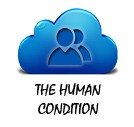 |
|||||||||||||||||||||||||||||||||||||||||||||
   
Balancing Act: The Newsletter (No. 196, December 2015)
Follow me on Twitter! You can find me here:
And find me on Facebook:
Free consulting newsletter: The Million Dollar Consulting® Mindset:


When I was in college in the 60s, we had roaring debates, protests, sit-ins, occupations, and fiery confrontations about the Viet Nam War. It was the age of SDS (Students for a Democratic Society), Black Panthers, the assassinations of Martin Luther King, John Kennedy, and Robert Kennedy, Woodstock, and inner cities burning. Rutgers was in the conflagration, both in the protests and having a main campus in Newark, New Jersey. I was amazed at the time that no one actually wanted real debate—not the radicalized students, and not the professors. What they wanted was their point of view heard and accepted, period. Everyone else was shouted down: guests, armed forces recruiters, debate opponents, members of the administration. It was "our way or the highway" and militancy about free speech—for one side only. I was editor of the campus newspaper (we won 8 awards) and had to deal with interest groups who felt that only their position should be represented. We faced threats that the newspaper would be stolen from the distribution points if we published "unfriendly" pieces. What we see today is nothing new. It's not a product of our age but a product of insulated campuses where extreme positions seek to ban free speech and even free thought. Not long ago, based on a protest at Brown University and the booing off the stage of the New York City police commissioner, a professor actually wrote a newspaper op ed piece apprising us that "free speech should not be guaranteed on college campuses." Oh. (Never mind the fact that Brown University, a bastion of changing Columbus Day to Fall Break Day and Christmas Trees to Holiday Trees is named after the family of the most egregious and largest slave trader in the history of the United States.) There is an intense rationalization that occurs among zealots that suspends natural laws, freedoms, and liberties because their cause trumps all others. Even when the cause is just in my view, I still believe it is validated by listening to the other side and responding in kind, not obliterating the other side. Otherwise, we live in a Fascist, Orwellian Animal House of lies and propaganda. Unfortunately, too many of these protestors in schools of higher learning don't understand Fascism, don't know Orwell, and never read Animal House. 
The human condition: Insufficiency I help people to write: articles, blog entries, newsletters, book proposals, books, letters to clients and prospects, proposals—you name it. I do this because I know how to write expeditiously and well, and also understand how to teach the skills, viz.: I lead people through the "Book Sprint" creating a complete book proposal in just 60 days. The astounding problem I encounter is the absolute, tendentious, unassailable belief of others that what they write is never good enough. I've told people what a great job they've done, citing their examples, use of language, metaphors, and visuals, and they respond, "How would you improve the next draft?" "There won't be a next draft that I'll read," is my standard reply. Many people show random others their work, and not only elicit feedback but act on it, no matter how abstruse or irrelevant. (By the way, "random" means "chosen without conscious method.) Their cousin, or accountant, or neighbor, or Uber driver has suddenly become Bosley Crowther, Frank Rich, and Pauline Kael. They invest people who have never, themselves, written anything of worth (and perhaps not read much, either) with some kind of gnostic literary wisdom. I've always maintained that you can't help people who don't want to be helped, but I've since come upon a corollary: You can't help people who want to be helped too much! I've had to refuse to further read additions, addenda, rewrites, and edited material. If I do, I merely enable the phenomenon. If I don't, I hurt some feelings, which is far less painful. It's amazing that some people will engage in dangerous behavior willingly—police officers, acrobats, emergency responders, pilots, free-fallers, extreme skiers, and so forth—but are afraid to air or expose what they've written without more validation than it took to prove the theory of relativity. There is an insufficiency deeply felt by too many people when they put metaphoric pen to paper. Most of the stuff submitted to me is good. A small amount is not very good but is almost always remedial. And a surprising amount is quite good. Yet the writers seem to hate it all and want their mail carrier, dog walker, or gardener to provide critique. Folks, why not start from the position that you're talented and good, and go from there? That's already been validated, because you're smart enough to be reading this newsletter. 
The Global Entry machines are out of order in Toronto, the American immigration guys are snarly and slow, and the line is two blocks long. But I spot an agent at a desk out of the way with no line and present him with my papers. "Oh, no," he says politely, "I'm with the Canadian police, and this is my station." "Well, then," I responded, "arrest me, because the other line is too long!" He laughed, called over to the American, and said, "Take this guy next, he's a friend." And that's exactly what happened, with not even a cursory glance at my papers and passport except a quick stamp. 
Having problems viewing this email, click here. |
Balancing Act® is our registered trademark. You are encouraged to share the contents with others with appropriate attribution. Please use the ® whenever the phrase "Balancing Act" is used in connection with this newsletter or our workshops.

Stop seeking blame and start searching for cause Alan Weiss |
||||||||||||||||||||||||||||||||||||||||||||
 |
|||||||||||||||||||||||||||||||||||||||||||||












